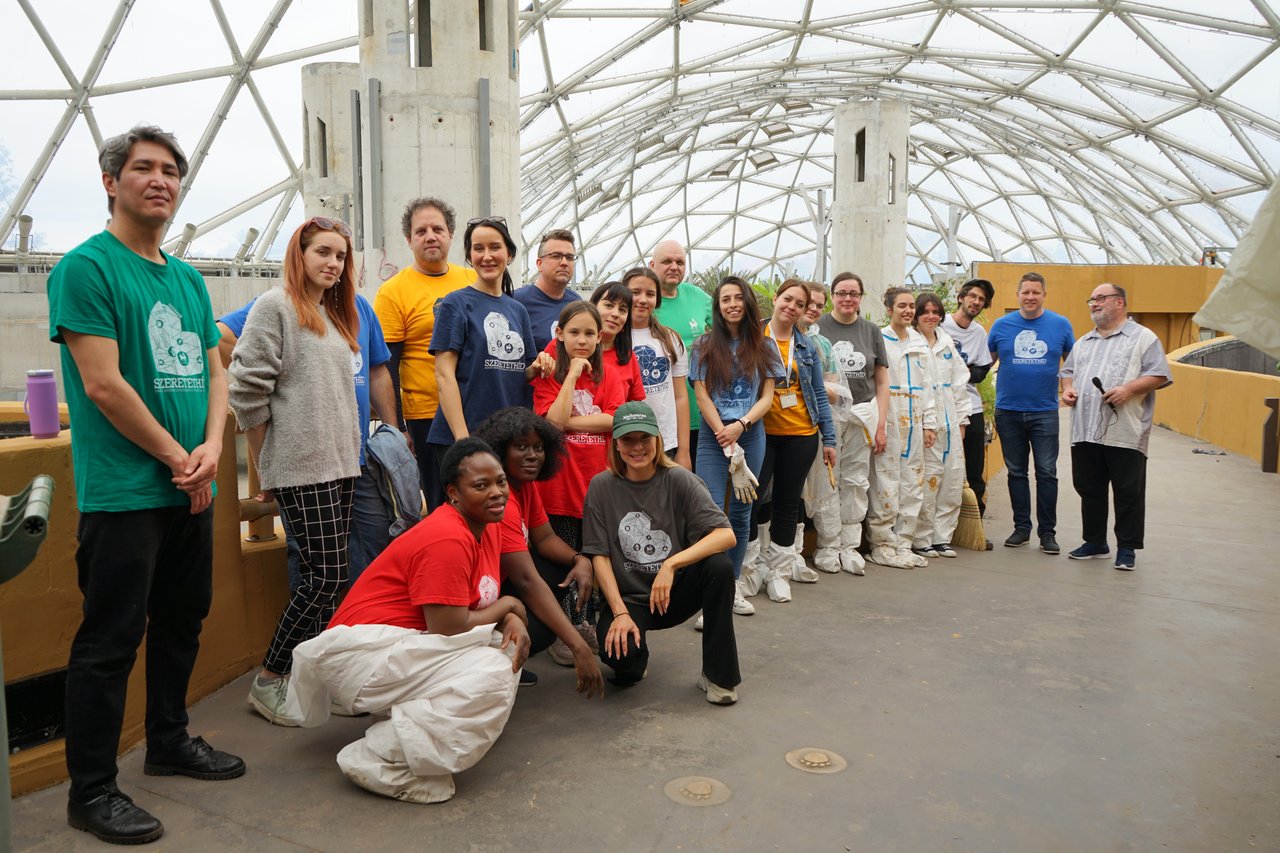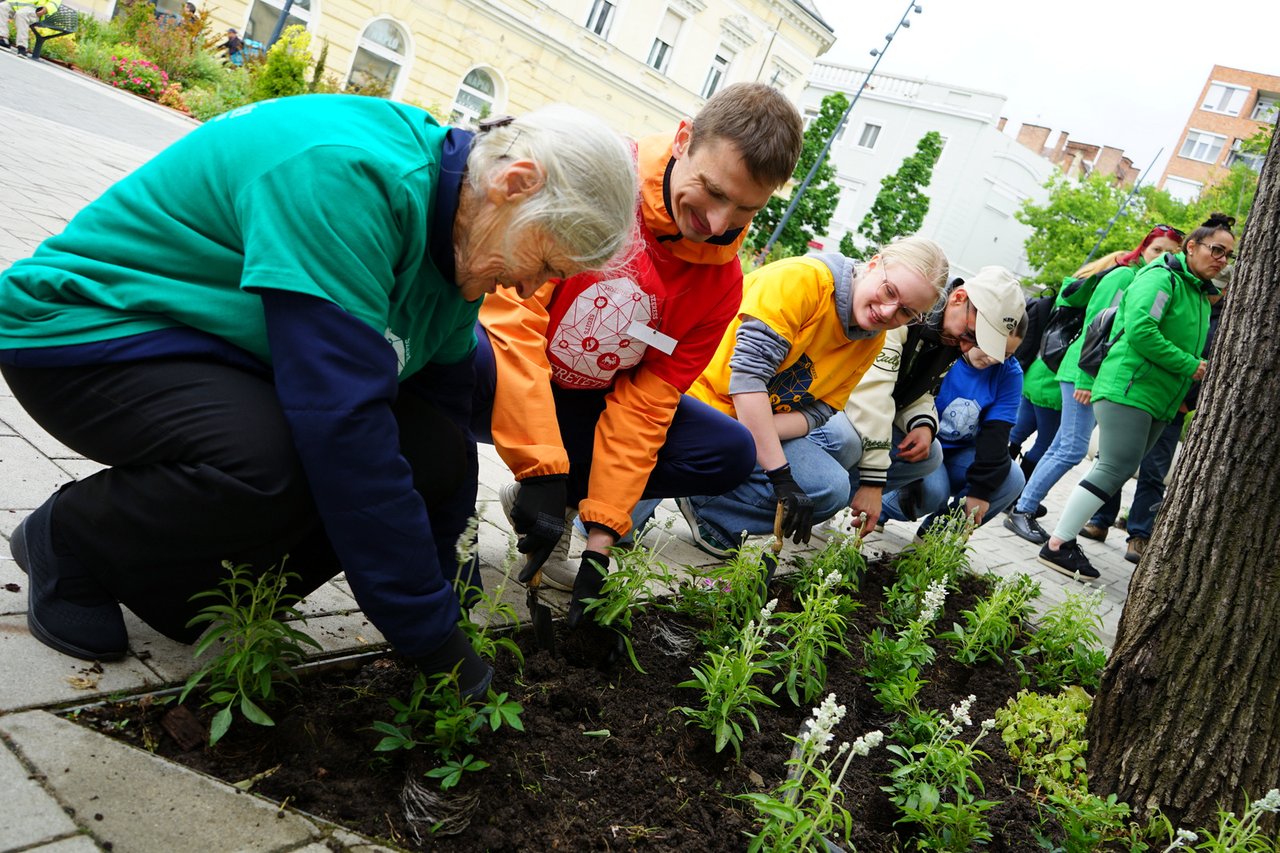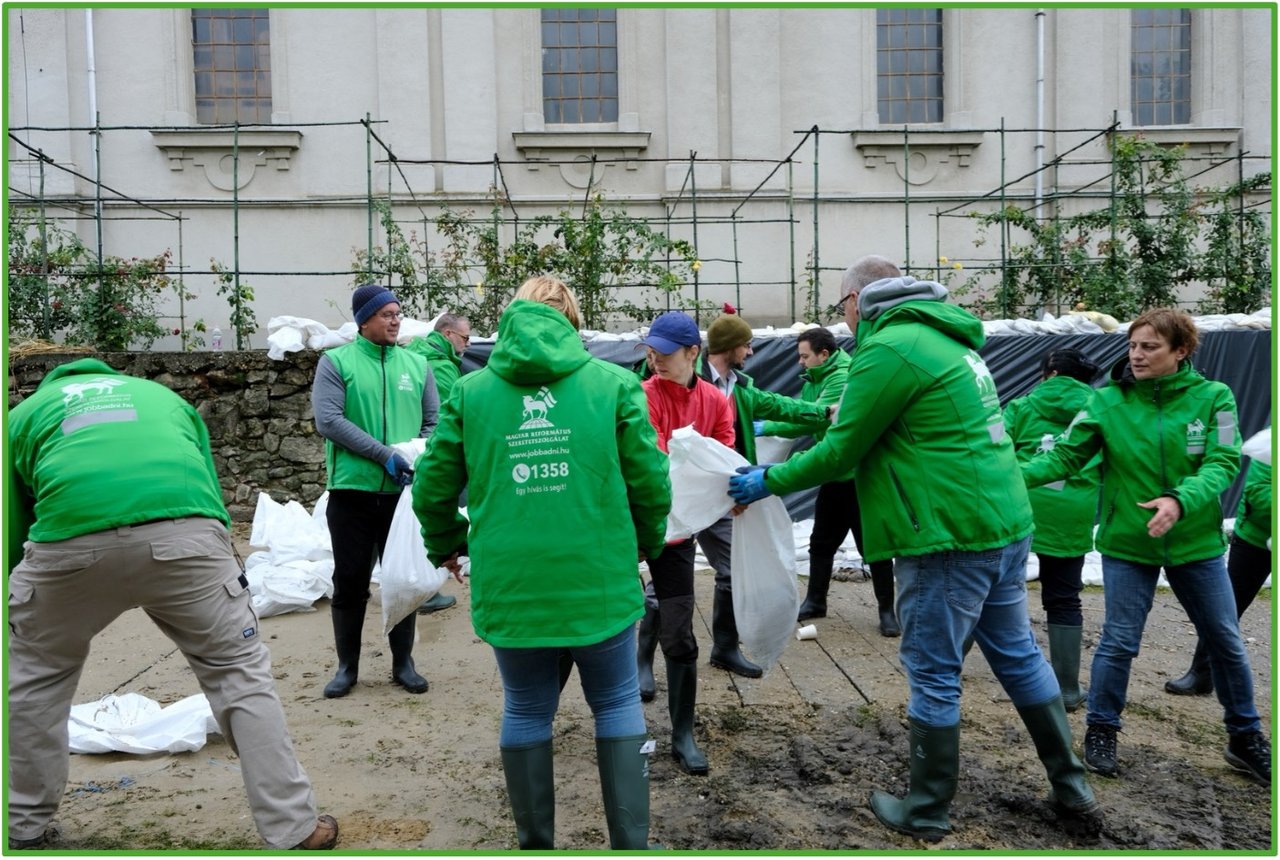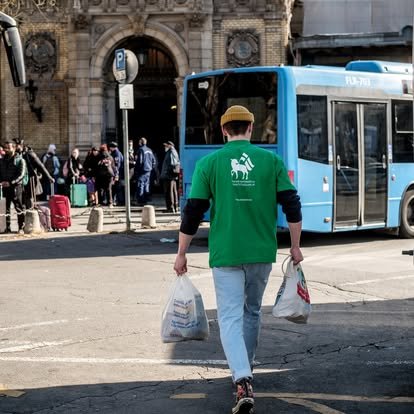Volunteering is a vital component of the Reformed Church in Hungary's mission. Whether through local service projects, international partnerships, or everyday acts of care, volunteers play a key role in how we live out the Gospel together. This year’s Unity Day and the “Bridges of Love” program shone a special light on the transformative power of volunteer service across the Carpathian Basin.

Photo: HRCA
For many service-oriented organisations and non-profits, volunteers provide vital support, bringing flexibility, experience, dedication, and a heart for learning. They play a key role not only in the daily life of ministries but also in disaster relief, community events, and programs that require far more hands than full-time staff can offer. The Hungarian Reformed Church Aid (HRCA) embodies this spirit of service through initiatives like the “Bridges of Love” volunteer campaign. In 2025, thousands of volunteers across the Carpathian Basin participated in local projects as part of the service program.
This year, the “Bridges of Love” program coincided with the Hungarian Reformed celebration of Unity Day. This celebration marks the reunification of the Hungarian Reformed churches across the Carpathian Basin in 2009 under a common synod, following the scattering of Hungarian Reformed churches as a result of the breakup of the Austro-Hungarian Empire after World War I. In Debrecen this year, thousands of reformed people gathered to celebrate Unity Day together. The concurrent celebration of Unity Day and the participation of numerous communities and thousands of volunteers through the “Bridges of Love” program underscored the importance of service and its power to transcend borders, both geographical and spiritual.
In an interview with the HRCA, Bishop József Steinbach, Ministerial President of the Synod of the Reformed Church in Hungary, discussed the importance of the “Bridges of Love” program and how it encourages individuals to engage in their local communities, as well as the multiplying effect that community engagement has. The Bishop said that “Working together brings results that are orders of magnitude greater than the number of people involved.” Bishop Steinbach also spoke to the spiritual foundation of service saying that “voluntarism has a spiritual dimension that stems from the love of God, that is, from faith, according to which we have experienced God's life-giving love, the richness that only He can give, and from this we want to pass it on to others.”

Photo: HRCA
For the “Bridges of Love” program, over 12,900 individuals registered at 374 locations across the Carpathian Basin. These activities included environmental protection projects, social activities, and developmental projects.
Service and volunteer work are not only celebrated through the “Bridges of Love” program. Márton Juhász, interim executive director of HRCA, shared the wide range of ways people engage in service. Some bring their professional training, for example, doctors, search and rescue workers, or construction and engineering workers building houses in rural areas. Others offer practical support: staffing summer camps, assisting the various missions of the HRCA, including the hospital mission, the blind mission, the deaf mission, the Addiction mission and others. The HRCA also provides comprehensive training programs for volunteers in order to equip them properly for their support role. For example, Juhász explained that the HRCA runs a crisis hotline, unique in Hungary among other organisations in the Hungarian Interchurch Aid, which is staffed with volunteers who are thoroughly trained to support the needs of those in crisis who reach out.
The HRCA, its staff, and volunteers are swift to respond to various emergency situations, both local and international. The search and rescue team, comprised of professionalised volunteers, has travelled to assist in natural disasters across the globe, including the 2023 earthquakes in Turkey and northern Syria, as well as Morocco later that year. The HRCA volunteer medical team has assisted in disaster response and relief efforts in Japan, Bangladesh, Myanmar, and other countries.
In 2022, when the Russian Federation invaded Ukraine, the HRCA was present with volunteer doctors, nurses, interpreters and other individuals to offer medical assistance, food packages, translation assistance, information, and many other ad-hoc needs. Thousands of volunteers met displaced persons in the railway stations of Budapest and Záhony to help them adjust and find their way. For Márton Juhász, he noted “the thing most unique was that society jumped in to help on such a large scale to help with donations and personnel.”
Not only do volunteers assist in such large-scale efforts as the Ukraine response activities or search and rescue, which Juhász notes is a big risk to life and health in some situations, but volunteers also support locally in critical ways. In September 2024, when floods ravaged central European cities, including Budapest and its surrounding areas, over 80 volunteers joined the HRCA staff to assist in building sandbags and draining floodwater from damaged buildings across three towns in three days.
HRCA’s Response to the Floods in Transylvania
A team of the Hungarian Reformed Church Aid (HRCA) dispacthed for Transylvania with two tons of humanitarian aid and water pumps to help flood victims and displaced families. HRCA also launched a donation campaign inviting members of the Hungarian reformed community in the region.
It’s not only in singular celebratory days or emergency situations that volunteers support the RCH and HRCA. Many are present in the smaller, day-to-day activities, supporting with their presence and knowledge. From trained specialists to young volunteers and retirees, the common thread is a willingness to help wherever there is a need. The result is a deeply intergenerational and diverse community of volunteers, one that lives out the call to serve with humility and joy.
Beyond crises and campaigns, much of the Church's volunteer work happens quietly and consistently. Volunteers show up in ordinary places—schools, shelters, kitchens, and offices. Their impact is not always dramatic, but it is no less transformative.

Photo: HRCA
A Global Volunteer Perspective
Rebekah, a volunteer from North America, joined HRCA’s Refugee Ministry in Budapest through a year-long program in 2024. She began tutoring refugee children in mathematics and soon found herself immersed in many aspects of their lives, from chaperoning outings to simply sharing bus rides. “While the events were always fun, some of the most meaningful moments for me were the ordinary journeys on public transport with the children. It was then that we got to talk about our lives and share experiences and beliefs,” she shared. “It helped me to see volunteering as the willingness to show up in a moment of need and to give what I can at that time.”
Healing Through Helping
For one volunteer from Ukraine, volunteering locally became a deeply personal journey of healing and joy. She spends time cooking with teenagers and organising regular clubs and meetings, teaching recipes, building teamwork, and creating a safe space. “As a teenager, I dreamed about having opportunities to talk to someone just like me,” she said. “By doing these small activities, I create a happy atmosphere for these kids and also heal my inner teenager.” For her, her birthday stood out as a moment of affirmation, when on this day, several teens told her they finally felt like they were part of something meaningful. “I guess this is what it was all for.”

Photo: HRCA
Teaching and Transformation
Another volunteer, a Hungarian language tutor, found her motivation while supporting Afghan and Pakistani children at a refugee shelter. Through her work supporting refugees, she became connected with the HRCA. Though trained as a teacher, she had never used her degree professionally until now. “It is recharging and motivating to see how quickly these children can develop and adapt in a country that is completely foreign to them,” she reflected. “A little girl I tutored went from struggling to read and write to performing well in Grade 5.” She said that volunteering also challenged her personally: “All my voluntary work has taught me to dare to step out of my comfort zone. I learned to be more patient and open… I’ve always believed in the power of community, but seeing the supportive environment of the Reformed Church Aid has only strengthened my faith.”
In his interview with HRCA, Bishop Steinbach recalled the verse Proverbs 10:25: “A generous person will prosper; whoever refreshes others will be refreshed.” Márton Juhász also recalled this verse in his interview, stating that his experiences growing up and volunteering at a camp for individuals with disabilities had a profound impact on his formative years, and this verse remains something he carries with him in his work. Even now, Juhász still returns to the camp regularly and meets with individuals he met in his first few years. Across all these stories, one thread runs true: the act of giving transforms both the giver and the recipient; there is a mutuality in service and learning. From international volunteers arriving in Hungary with a willingness to serve, to local community members creating healing spaces through meals or mentoring, the impact of each act of love and service is multiplied.